English rugby reveals new concussion injuries programme
- Published
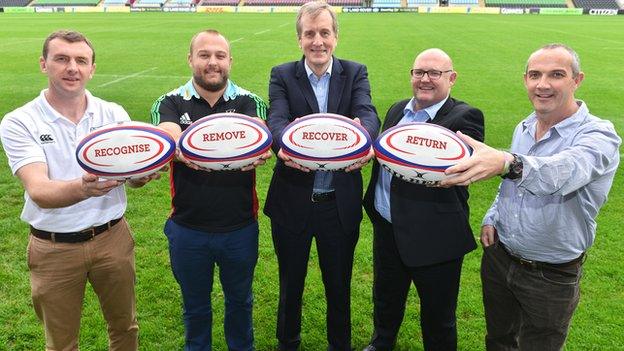
Former Ireland international Conor O'Shea (furthest right) was at the launch of the changes
English rugby has announced major changes to the way concussion is managed in the professional game.
The joint venture between the Rugby Football Union (RFU), Premiership Rugby and the Rugby Players' Association (RPA) focuses on awareness, management in games and 'return to play' protocol.
All players, coaches and officials will now need to pass an online module, or risk a fine or even a suspension.
There have also been alterations to the head injury assessment process.
In addition Bath University will monitor players who are returning after a concussion.
There were 6.7 reported concussions per 1,000 hours played in English rugby in 2012-13.
Concussions were the most common injury in Premiership games with 54 in matches, and five in training.
The changes have been accelerated by the ongoing legal case against the NFL and the discovery of progressive degenerative diseases in the brains of several dead American football players.
Changes to the head injury assessment process |
|---|
The memory test has been strengthened and the balance test altered |
Doctors now have twice as long - 10 minutes - to decide if a player can return to the field |
All Premiership grounds and Twickenham will have medical teams with access to replays to help that decision |
Any player with confirmed or suspected concussion will be permanently removed |
An independent review will be held of the on-field management of all cases during Premiership Rugby and England matches |
"Rugby has been working on concussion management since 2004," the RFU's chief medical officer Dr Simon Kemp told BBC Sport.
"The science of brain injury and how you manage it is also developing very quickly and the changes in landscape has really focused the minds of sporting organisations."
The online module is designed to improve the awareness and understanding of concussion, and is compulsory for all registered players, coaches and officials in the professional game.
"I have done the module and I think it's a really positive step forward," Harlequins' RPA representative Mark Lambert told BBC Sport.
"Some players probably still take concussion lightly, but hopefully this is a big step in the right direction."
Corin Palmer, Premiership Rugby's head of rugby operations, told BBC Sport the new concussion programme will help improve the attitude to head injuries at all levels.
The deadline for players, coaches and officials to sit the module is 11 December, with fines for anyone failing to meet that cut-off.
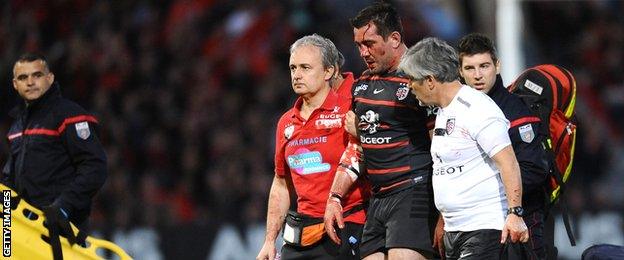
Florian Fritz was encouraged to return to the field in a French Top 14 match, despite suffering a significant head knock
The penalty will then be doubled if it is not completed by Christmas Day.
However, Palmer is confident there will be little opposition in the professional game.
"We are sending a message out," he said. "If [the module] is not completed they could be withdrawn from playing, coaching or officiating."
Harlequins director of rugby Conor O'Shea says coaches will continue to adopt a strict stance when it comes to head injuries.
"Anytime you talk about the head, it is a brain injury and has to be taken seriously," he told BBC Sport.
"From a coaching point of view, head injury means off the pitch. It is no longer a badge of honour to get up and play on, or play two or three days after you have had a head knock. You cannot."
O'Shea is confident that in England there will be no repeat of what happened in the French Top 14 last season, when the Toulouse coach Guy Noves encouraged a dazed Florian Fritz, external to return to the field.
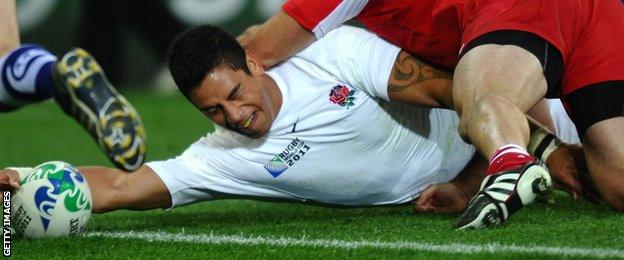
Former England centre Shontayne Hape retired in January after suffering multiple concussions
"People are well on top of this. If you are injured [in training] three days before a cup final, you don't play. That's what we have all bought into," he added.
On top of the changes, Bath University will monitor and report on the graduated return to play (GRTP) pathways for Premiership Rugby and England players.
England and Leicester second-row Geoff Parling has been advised to rest for up to three months after a series of concussions, and Dr Kemp says the process of determining how long a player should be on the sidelines is constantly developing.
"Clearly the guidelines regarding a single first concussion are reasonably clear," he said.
"How you factor in previous concussions is an area that still is not well understood. There is no hard and fast guidance, but our understanding of what is appropriate will evolve."
- Published1 June 2014
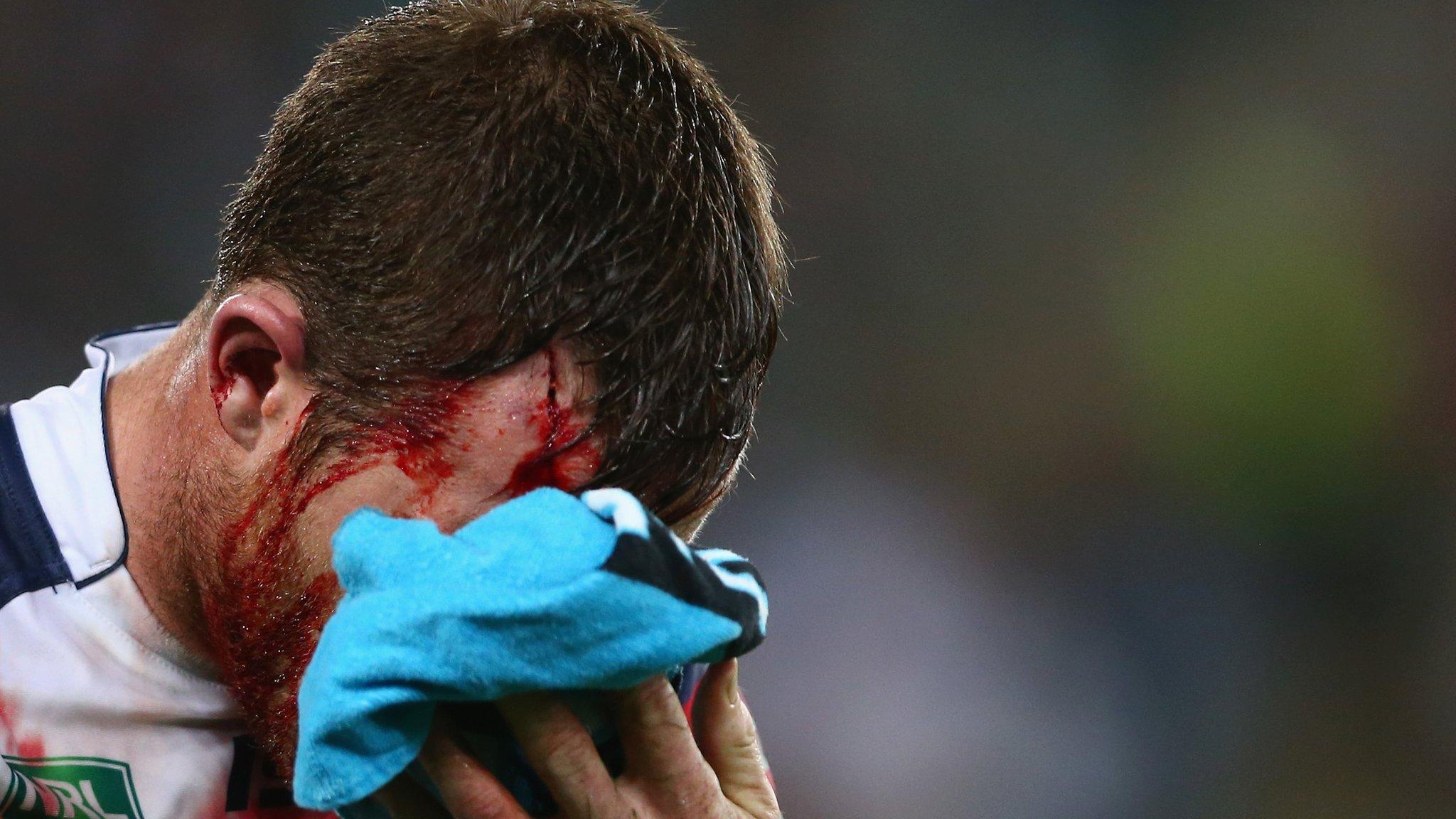
- Published10 February 2014
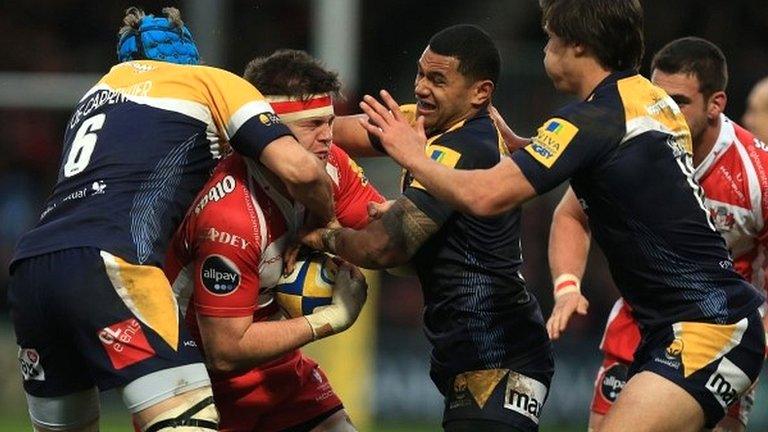
- Published13 January 2014
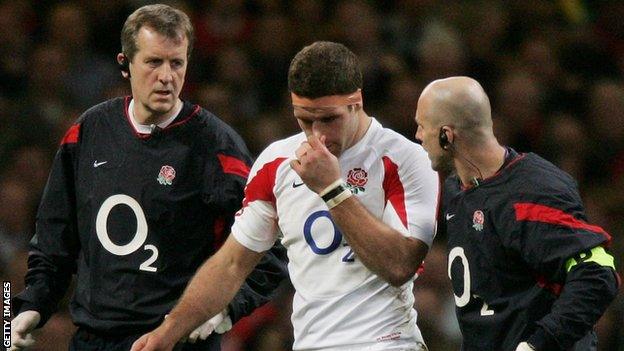
- Published1 November 2013
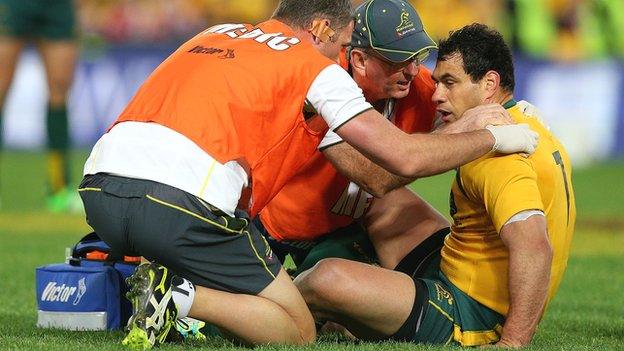
- Published14 September 2016

- Published15 February 2019
